Airlines, Airports and Airliners News 26 to 3 July 2022
Compiled by Willie Bodenstein
Google Banner Ad

QATAR AIRWAYS AND AIRLINK SIGN COMPREHENSIVE CODESHARE AGREEMENT TO ENHANCE CONNECTIVITY ACROSS SOUTHERN AFRICA

Qatar Airways and Airlink have signed a comprehensive codeshare agreement to offer travellers more choices, enhanced services and greater connectivity between 45 destinations in 13 countries across Southern Africa and the rest of the world. This new codeshare agreement means travellers can enjoy the simplicity of purchasing connecting flights on both airlines using a single reservation with seamless ticketing, check-in, boarding and baggage-check experience, during the entire journey.
The partnership will enable customers to book attractive offers from Southern Africa to popular destinations in the U.S. such as New York and Dallas, cities in Europe such as London, Copenhagen and Barcelona, and points across Asia like Manila, Jakarta and Cebu. The agreement also increases Qatar Airways' footprint in Southern Africa, with improved access to destinations such as Ggeberha (Port Elizabeth), Hoedspruit, Skukuza, George in South Africa and beyond to Botswana, Namibia, Zambia, Zimbabwe and Mozambique.
Qatar Airways Group Chief Executive, His Excellency Mr Akbar al Baker said: "Expanding our network with Airlink gives our customers more choice of destinations and flights, that we hope will contribute to the rapid recovery of travel, which plays such an important role in Southern African economies."
"We have boosted our presence in the African market by adding eight new destinations since the start of the pandemic and fostering partnerships such as this dynamic agreement with Airlink which will greatly enhance our offering to our customers and support travel and trade."
Qatar Airways was the only airline to launch new services in Southern Africa after the pandemic, starting operations to Luanda, Harare and Lusaka last year. It resumes operations to Windhoek this month, providing another connection to Airlink's extensive regional network via eight gateways in the region.
Airlink Chief Executive, Mr. Rodger Foster said: "This development is an endorsement of Airlink's relevance to providing air access to the entire region through our expansive network of destinations, which when considered in conjunction with Qatar Airways' global reach creates unparalleled connectivity opportunities. As Southern Africa's leading airline, Airlink provides comprehensive, safe, and reliable air transportation services, enabling socio-economic development by connecting people with each other and facilitating trade within the region and beyond."
The new codeshare flights are available for sales and will commence travel on 6th July 2022 subject to government approval.
Qatar Airways offers 21 direct weekly flights from Doha to Johannesburg, 10 weekly flights to Cape Town and four weekly flights to Durban. From South Africa, travellers can connect easily to destinations across six continents via the World's Best Airport, Hamad International Airport.
Passengers can book their travel with both airlines, through online travel agencies as well as with local travel agents.
Qatar Airways was the only carrier to continue operations to Southern Africa during the pandemic and its immediate aftermath, allowing for the movement of goods, medicines and essential travel between the region and the rest of the world. This enabled people to return home to their families, to jobs and assisted with the post-pandemic recovery of our Southern Africa trade partners, and the business community.
Google Block Ad
ICAO COUNCIL REVIEWS DUAL REGISTRATION OF COMMERCIAL AIRCRAFT BY RUSSIAN FEDERATION
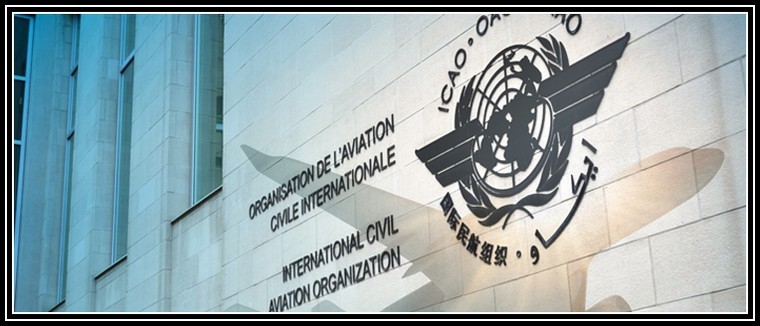
During its 226th Meeting Session, the ICAO Council considered matters referring to the operation of double-registered aircraft in the Russian Federation.
Article 18 of the Chicago Convention provides that an aircraft cannot be validly registered in more than one State, although its registration may be changed from one state to another. Once a State has registered an aircraft, a number of safety-related obligations fall upon it by virtue of the Chicago Convention and its Annexes. The dual registration of aircraft raises safety concerns relating to, among others, the international validity of each airplane's certificate of airworthiness and radio station license.
Taking note of the applicable legal principles contained in the Chicago Convention, and an oral report on the queries undertaken by the ICAO Secretariat in the interests of air safety in the context of operation of aircraft, the Council called on the Russian Federation to immediately cease its infractions of the Chicago Convention, with a view to preserving the safety and security of civil aviation, and to urgently remedy these violations.
The Council also requested the Secretary General to report these infractions, if not urgently rectified, to all Chicago Convention Contracting States, in accordance with Article 54 j) of the Convention and further decided to submit this matter to the 41st Session of the ICAO Assembly this September-October, for Contracting States' consideration in accordance with Article 54 k) of the Convention.
The ICAO Secretariat was further requested to continue to monitor the situation closely, and to report to the Council on any further developments.
TRAVELLERS CAN NOW ENJOY A MORE CONVENIENT TRAVEL VERIFICATION EXPERIENCE THROUGH FACIAL RECOGNITION

No more fumbling for an ID or a boarding pass, American Airlines Mobile ID unlocks a more seamless and touchless travel experience. American Airlines customers with TSA PreCheck® can now breeze through the airport with just their phone and their face, thanks to a collaboration with the Transportation Security Administration (TSA) and American to test mobile identification.
Starting today at Dallas Fort Worth International Airport (DFW), American Airlines AAdvantage® members who are enrolled in TSA PreCheck may choose to use their American Airlines Mobile ID at select TSA PreCheck checkpoints to have their identity verified. The experience is now available at every TSA PreCheck location at DFW, with plans to deploy at select TSA PreCheck checkpoints at Miami International Airport (MIA), Phoenix Sky Harbour International Airport (PHX), Washington Reagan National Airport (DCA) and more later this year.
"We're committed to making our customers' journeys easier, and airport waypoints provide significant opportunities for innovation," said Julie Rath, Vice President of Customer Experience, Loyalty and Marketing for American. "By simplifying the identity verification process and other points at the airport, we're helping our customers exchange stress for convenience and saving time, and propelling the travel industry further along the path to a truly seamless customer experience."
Creating and storing the American Airlines Mobile ID is simple. Before travel, American Airlines customers with TSA PreCheck who choose to participate in this program need to: download the Airside Digital Identity App on an iOS or Android device, take a photo of their face, scan their driver's license or passport with the app and enter their American Airlines AAdvantage number.
The app then verifies the customers' information using mobile ID technology powered by Thales to compare against each state's Department of Motor Vehicles records or the passport's embedded NFC chip. Securely stores the customer's American Airlines Mobile ID on their mobile device until they choose where and when to share it.
As they go through security, customers simply present a QR code on their phone and consent to share their American Airlines Mobile ID with TSA. After sharing their Mobile ID, customers look into a camera at the TSA PreCheck checkpoint. TSA's computer system then matches the customer's encrypted image against their American Airlines Mobile ID. The entire process at the airport typically takes less than five seconds.
Once verified, TSA erases the encrypted digital ID from its checkpoint readers and customers retain their digital ID on their device until they are ready to use it at another waypoint, such as an airport lounge.
Google Block Ad
FLIGHT SAFETY FOUNDATION AWARD HIGHLIGHTS ICAO'S COVID-19 PANDEMIC RESPONSE AND LEADERSHIP
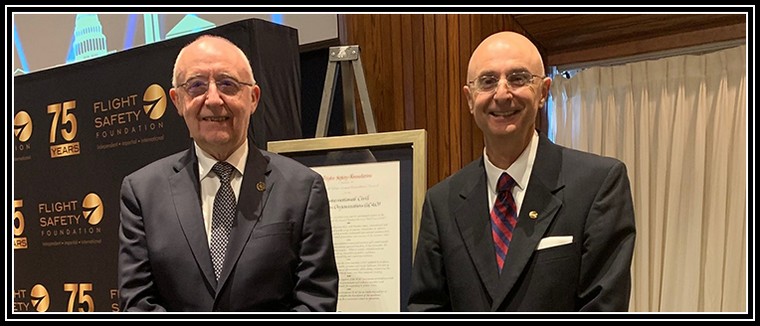
In recognition of the leadership and coordinated response to the COVID-19 pandemic realized by the ICAO Council Aviation Recovery Task Force (CART), the Flight Safety Foundation (FSF) conferred its inaugural Richard Teller Crane Founder's Award upon the Organization at a special ceremony in Washington last night.
"From the outset of the pandemic, ICAO recognized that a successful recovery and restart would be best supported by a well-coordinated international approach and by the Council establishing a task force," remarked FSF President and CEO Hassan Shahidi.
"As the pandemic continued and virus variants emerged, the ICAO task force updated its recommendations and guidance and worked to mitigate the devastation of the pandemic."
The award was received by the President of the ICAO Council, Salvatore Sciacchitano, on behalf of the Organization and the many other international experts from States and across the air transport industry who contributed so tirelessly to the global aviation response to the COVID-19 pandemic.
Through the ICAO CART, which was established in April 2020, ICAO has forged partnerships with a wide array of stakeholders to address pandemic-related challenges in aviation, providing co-ordinated international guidance to regulators towards ensuring the continued provision of essential services, and accelerating and optimising the safe, secure and sustainable restart of all air transport operations.
"All of the major industry trade bodies were instrumental in assuring the speed and effectiveness of its recommendations, and the dedication and solidarity of our global community was clearly apparent throughout the three distinct Phases of global guidance issued by the CART during the pandemic period," President Sciacchitano remarked.
"With our efforts much more focused now on managing the safe and rapid recovery of global air traffic, the closer co-ordination we established between civilian and commercial stakeholders during the pandemic will now be deeply relied upon as we build this sector back better for a post-pandemic world."
The Richard Teller Crane Founder's Award is named in honour of an FSF founder and entrepreneur who played a critical leadership role in the early days of the Flight Safety Foundation. The award recognises an organisation for sustained corporate leadership through lasting contributions to civil aviation.
The CART's critical role has also been recognised by ICAO's Member States. The Ministerial Declaration resulting from the ICAO High-level Conference on COVID-19, which was adopted in October 2021 in the presence of over 50 Ministers and Deputy Ministers, is of particular note. This declaration places the implementation of the CART recommendations and guidelines at the heart of the global vision for aviation recovery, resilience and sustainability.
Google Banner Ad
THE SKY IS THE LIMIT - AIR NEW ZEALAND TO RELAUNCH 14 INTERNATIONAL ROUTES IN 16 DAYS
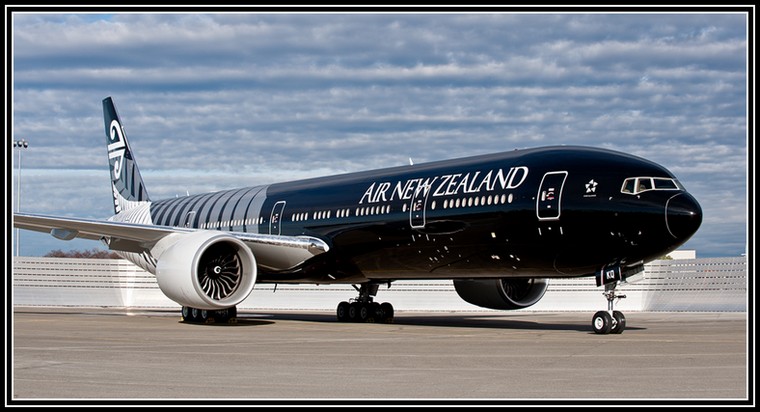
Air New Zealand is gearing up for the busiest July in two years with the relaunch of 14 international routes in 16 days. With these routes back in action, the airline will be operating 60 percent of its international capacity - the most international flying in the last two years.
From 9 July, the airline will have three quarters of its international and domestic routes back up and running with popular destinations like Honolulu, Houston and Tahiti restarting after around 820 days of not operating.
The Boeing 777-300 aircraft will also be back flying passengers, helping towards the addition of around 40,000 seats per week in July on the international network.
Air New Zealand Chief Executive Officer Greg Foran says it takes a village to get the airline back up and running and is incredibly proud of the sheer amount of work the team at Air New Zealand has put in to get to this moment.
"To bring one Boeing 777-300 out of storage in Auckland takes around six to eight weeks to get it ready for the skies. We've hired or rehired more than 2,000 Air New Zealanders across the business including 150 pilots, more than 500 cabin crew, and 270 airport employees, with another 1100 vacancies to be filled. It's no easy feat but we're getting back to where we were so we can give our customers that Air New Zealand service they know and love.
"We're seeing first-hand how keen people are to travel again, particularly across the Tasman. Come July, we will double our services across the Tasman and restart popular direct services like the Sunshine Coast, Hobart and Adelaide. By 9 July we will be back to all nine Australian ports which is an important milestone for us.
"I'd like to thank our customers for their patience while we get back to where we were pre-Covid, as well as our teams who are working hard to gear back up.
"Getting aircraft out of storage, people back in, opening ports, and working with new travel requirements, there's a lot to consider, and the Air New Zealand team are doing their very best to make it happen as quickly as possible."
AIRBUS AND MUNICH AIRPORT INTERNATIONAL EXPAND THEIR PARTNERSHIP TO DEVELOP ADVANCED AIR MOBILITY SOLUTIONS GLOBALLY

Airbus and Munich Airport International have signed a Memorandum of Understanding at ILA Berlin Air Show to start marketing turn-key solutions to cities and regions interested in developing advanced air mobility (AAM) ecosystems globally.
Airbus is developing CityAirbus NextGen, its electric vertical take-off and landing (eVTOL) aircraft, along with key support and services offerings around it, while Munich Airport is offering ground infrastructure services and solutions.
"Munich Airport International is already collaborating with Airbus on the Air Mobility Initiative recently launched in Munich - now we are expanding that partnership globally to support select cities and regions around the world," said Ivonne Kuger, Executive VP Corporate Development MAI. "As Europe's first 5-star airport Munich Airport has always been at the forefront of innovation and it is crucial for airports to be actively involved in developing and paving the way for this new form of transport", Kuger adds.
"The development of the market, industry, and the ultimate service of AAM requires a holistic view and this has been our approach from the beginning. In addition to our decades of vehicle and technology development, certification, and support, we are actively building working ecosystems with our partners," said Balkiz Sarihan, Head of UAM Partnerships and Strategy Execution at Airbus. "We are sure that our partnership with Munich Airport will be a key catalyst for accelerating the development of the AAM ecosystems worldwide."
The successful integration of the different AAM elements requires a strong co-operation between global and local stakeholders combining key competencies. The objective is to create completely new ecosystems that ensure a safe and seamless integration of eVTOL solutions with other means of mobility bringing added value to cities and communities.
Airbus has been one of the pioneers in exploring how electric propulsion can help drive the development of new kinds of aerial vehicles. In September 2021, the Company unveiled its fully electric eVTOL prototype, CityAirbus NextGen. Airbus is developing an AAM solution with eVTOLs not only to offer a new mobility service but also as an important step in its quest to reduce emissions in aviation across its product range. The company recently announced the launch of the Air Mobility Initiative, a consortium of partners dedicated to the advancement of AAM in Bavaria and Germany.
Google Banner Ad
SCHIPHOL FLIGHT RESTRICTIONS THROTTLING AIR CONNECTIVITY BENEFITS IN THE NETHERLANDS
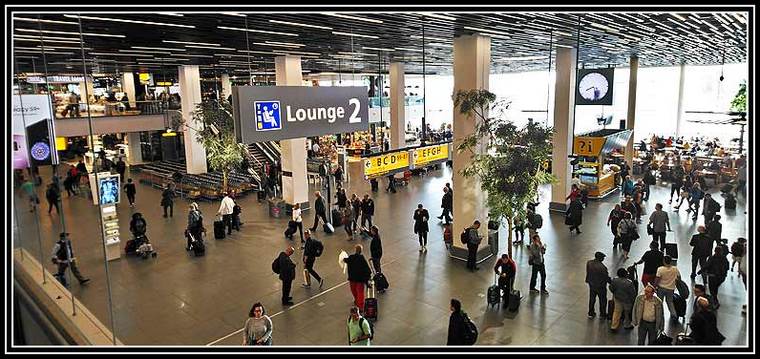
The International Air Transport Association (IATA) expressed shock at the announcement by the government of the Netherlands to cut the number of annual flights at Schiphol Airport to 440,000 - a 20% cut to Schiphol's potential cap.
"This sudden decision is a shocking blow to aviation, jobs, and the economy of the Netherlands. It comes on top of a tripling of the passenger tax, and a 37% rise in airport charges. We are seeing a throttling of air connectivity which has been steadily built up for 100 years, and supported large parts of the Dutch economy and the aspirations of millions of Dutch travellers," said Willie Walsh, IATA's Director General.
The justification put forward for the cut is not supported by facts. The government claims that the cuts will reduce noise and deliver a significant reduction in NOx emissions. But aviation's NOx contribution is around 1% of total NOx deposition in the Netherlands, and the redistributed noise paths that are also a part of this initiative will actually increase the number of people exposed to aircraft noise.
Prior to the pandemic, aviation supported more than 300,000 jobs and €22 billion in GDP to the economy of the Netherlands. Key to this economic contribution was the connectivity driven by Schiphol's global hub airport role. In 2019, Amsterdam was the third-best internationally connected city in Europe, behind only London and Paris.
"When governments shut down aviation in the pandemic, we all saw the terrible impact that it had on people in the Netherlands and its economy. Downsizing Schiphol will permanently destroy jobs that are only now recovering. Moreover, without the possibility to grow at Schiphol, businesses in the Netherlands will need to evaluate their future in an economy that will be moving from global gateway to a regional center," said Walsh.
Schiphol has been recovering fast since the end of pandemic restrictions. The airport has already had over 280,000 movements this year, putting it on track to reach its existing 500,000 movement limit. The previous Dutch government, recognizing the economic importance of Schiphol's hub connections, set out a pathway for Schiphol to grow to 540,000 movements. The sudden announcement of a cut to 440,000 movements thus constitutes a 20% cut to the potential connectivity of the airport.
On sustainable aviation, the industry has committed to reaching net-zero CO2 by 2050. Delivering this tough goal will require huge investment in sustainable aviation fuels (SAF) and cleaner, quieter aircraft. KLM's commitment to SAF, for example, is directly encouraging suppliers to increase production. But these investments can only be maximized if carriers are operating in a stable regulatory business environment. Overnight changes to the rules of the game by governments are counter-productive to investment in a more sustainable industry, nor do they create any environmental gain when passengers keen to fly will travel to alternative airports to do so.
"After two years of restrictions, the world is getting moving again. Schiphol has been struggling to cope with demand, which shows how important the airport is, not just to Dutch travellers, but as a strategic hub for the Netherlands. This crazy decision to cut the airport off at its knees will achieve none of the stated environmental aims, but it will cause irreparable harm to jobs and prosperity. The government should reverse course and set out a meaningful pathway for the sustainable growth of aviation in the Netherlands, focused on delivering sustainable aviation fuels and helping the industry meet its commitment to achieve net-zero CO2 by 2050," said Walsh.
HAWAIIAN AIRLINES AND PAR HAWAII ANNOUNCE PLAN TO JOINTLY EXPLORE SUSTAINABLE AVIATION FUEL IN HAWAII
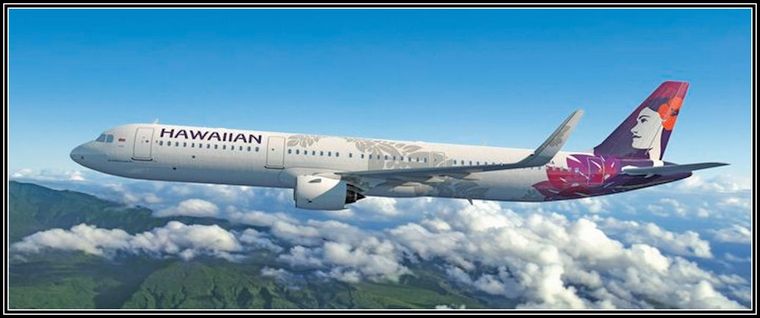
Hawaiian Airlines, the state's largest and longest-serving air carrier, and Par Hawaii, LLC ("Par Hawaii") an affiliate of Par Pacific Holdings, Inc. (NYSE: PARR) that is Hawaii's largest supplier of energy products, announced plans today to join forces to study the commercial viability of locally produced sustainable aviation fuels ("SAF") - to replace all or a percentage of traditional kerosene-based jet fuel with fuel that is made with sustainable feedstocks.
This is a major step for both organisations to reduce carbon emissions, to address climate change and to create a more sustainable energy future for Hawaii.
Based on a memorandum of understanding signed by both companies, Hawaiian Airlines and Par Hawaii will jointly evaluate the potential to convert two of the processing units at Par's Kapolei refinery to produce renewable fuels, including sustainable aviation fuel; explore the production of locally grown, oil-yielding crops; study the feasibility of importing sustainable feedstocks to produce sustainable aviation fuel and other renewable products; and convene stakeholders to continue to support and identify federal and state policies and programs that accelerate Hawaii-based production of renewable fuels.
"We have over 260 employees at our Kapolei refinery engaged in high quality manufacturing work," said William Pate, president and CEO of Par Pacific. "We're excited to be partnering with Hawaiian Airlines to innovate and position our business for the future. Aviation fuel represents approximately 40% of Hawaii's fuel demand, and our work with Hawaiian is an important step in addressing these emissions."
"This is the first step in what we hope will be a long and productive relationship that reflects both parties' unwavering commitment to the environment and to these islands we call home," said Peter Ingram, president and CEO of Hawaiian Airlines. "SAF is an integral part of decarbonising aviation, and we hope to be able to make joint investments in SAF production here in Hawaii, which will benefit both the environment and our economy."
Ingram added: "We know that it will take more than just our companies to accomplish this ambitious objective, and we look forward to engaging with partners across the community to build a more sustainable future for travel to, from and within the islands."
In 2019, Par Pacific invested $27 million in a distillate hydrotreater at its Kapolei refinery to produce more jet fuel and ultra-low sulphur diesel. This relatively new processing unit, along with the refinery's distillate hydrocracker - which produces high value transportation fuels by converting heavier, lower value products under high temperature and pressure - are the two primary units being considered for renewable fuels production.
"We believe we're headed in the right direction by collaborating with Hawaiian Airlines to explore the shift from petroleum to biofuels at our Par Hawaii refinery," said Eric Wright, president of Par Hawaii.
SILK WAY WEST AIRLINES SIGNS ORDER FOR TWO A350F
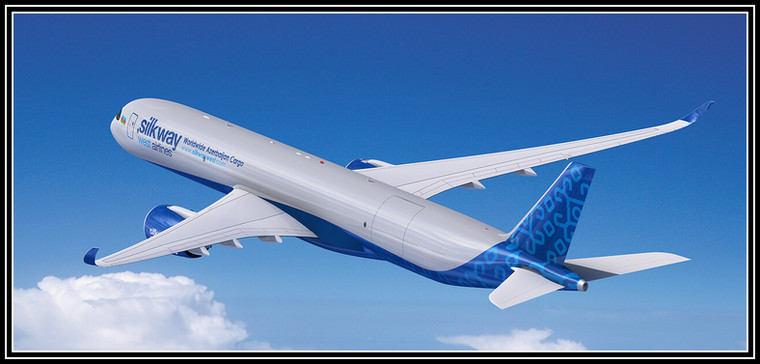
Silk Way West Airlines based in Baku, Azerbaijan has signed a purchase agreement for two A350F. This is the first order from the Caspian region for this aircraft type. The freighters are intended to modernize and further grow the existing fleet with the most efficient and sustainable cargo aircraft available in the market.
"We are delighted to sign the first but surely not the last agreement with Airbus, which marks the start of what I am sure will be a very fruitful partnership as we strive for future growth. Today, our guests witnessed a defining moment in Silk Way West Airlines' history. I am confident of the success that the acquisition of these new aircraft will bring us. The signing of this agreement marks a new milestone in the growth of our company. There is no doubt that this agreement will strengthen the company's leading position in the global air freight market over the next 15-20 years," said Mr. Wolfgang Meier, President of Silk Way West Airlines.
"I welcome Silk Way West Airlines as a new Airbus customer. The A350F is a game changer in efficiency and sustainability for the cargo operations of the future. We look forward to demonstrating how positively the economics and environmental signature of the A350s will stand out versus older generation aircraft." said Christian Scherer, Airbus Chief Commercial Officer and Head of Airbus International.
The A350F is based on the world's most modern long range leader, the A350. The aircraft will feature a large main deck cargo door and a fuselage length optimised for cargo operations. Over 70% of the airframe is made of advanced materials resulting in a 30 tonnes lighter take-off weight, which together with efficient Rolls-Royce engines generate an advantage of at least 20% lower fuel burn and CO2 emissions over its current closest competitor.
Launched in 2021, the A350F records to date 31 orders and commitments from six customers.
Google Banner Ad

|
                    |























